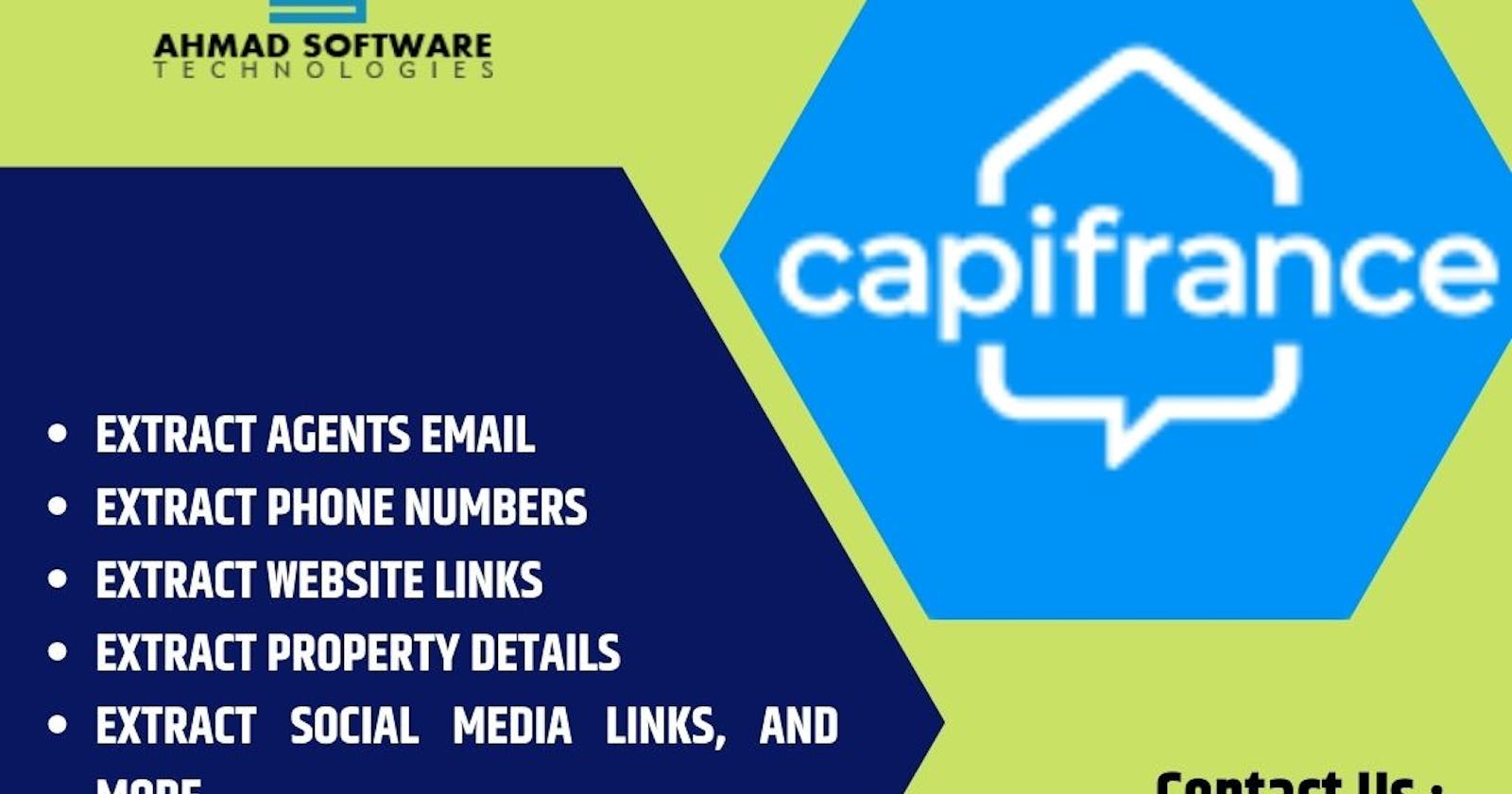Extracting Apartments and Agents Data from Capifrance.fr
How To Extract Real Estate Data From Capifrance.fr?
In the ever-evolving landscape of real estate, access to comprehensive data is key for buyers, sellers, and agents alike. Capifrance.fr stands as a prominent platform in France, offering a diverse range of apartments and professional agents to facilitate property transactions. Extracting data from Capifrance.fr opens doors to valuable insights for market analysis, investment decisions, and agent scouting. In this guide, we'll explore methods and strategies to efficiently extract apartment and agent data from Capifrance.fr.
Understanding Capifrance.fr's Structure:
Before diving into data extraction, it's essential to grasp the structure of Capifrance.fr. The website typically categorizes properties by location, type (apartments, houses, commercial), and other filters such as price range and amenities. Agents are listed alongside properties, often with detailed profiles showcasing their expertise and listings. Familiarizing yourself with this structure streamlines the data extraction process.
Web Scraping Tools and Techniques:
Web scraping, the automated extraction of data from websites, is a powerful method to gather information from Capifrance. Several tools and techniques can aid in this process. Python libraries like United Lead Scraper and Capifrance Real Estate Data Scraper offer robust frameworks for parsing HTML and navigating through web pages. Selenium, a browser automation tool, can simulate user interactions to access dynamic content.
Identifying Key Data Points:
When extracting data from Capifrance.fr, it's crucial to identify key data points relevant to your objectives. For apartments, these may include property details (size, number of rooms, amenities), location (address, neighborhood), pricing information, and images. For agents, relevant data points may include contact information, professional background, listings portfolio, and customer reviews.
Handling Dynamic Content and Pagination:
Capifrance, like many real estate websites, utilizes dynamic content loading and pagination to display extensive property listings. Handling dynamic content involves simulating user interactions to access hidden data elements. Pagination requires iterating through multiple pages of listings to extract comprehensive data. Robust web scraping frameworks can automate these tasks efficiently.
Respecting Website Policies and Terms of Service:
Before scraping Capifrance or any website, it's crucial to review their terms of service and scraping policies. While web scraping is a common practice, some websites may have restrictions or prohibitions against automated data extraction. Adhering to these policies helps maintain ethical standards and avoids potential legal issues.
Data Cleaning and Formatting:
Once data is extracted from Capifrance, it may require cleaning and formatting to ensure accuracy and consistency. This process involves removing duplicates, standardizing data fields, handling missing values, and converting data into a structured format such as CSV or JSON. Clean, well-formatted data facilitates analysis and decision-making.
Using Proxy Servers and Rotating User Agents:
To prevent IP blocking and detection while scraping Capifrance.fr, consider using proxy servers and rotating user agents. Proxy servers route requests through different IP addresses while rotating user agents simulate diverse web browsers and devices. This helps distribute scraping activity and avoid suspicion from the target website.
Monitoring and Updating Data Regularly:
Real estate data is dynamic and subject to frequent updates due to new listings, price changes, and property transactions. Establishing a system for monitoring and updating extracted data regularly ensures its relevance and accuracy. Automated scripts can be scheduled to periodically re-scrape Capifrance and capture any changes.
Ethical Considerations and Data Privacy:
While extracting data from Capifrance.fr offers valuable insights, it's essential to uphold ethical standards and respect users' privacy. Avoid collecting sensitive personal information or violating any privacy policies outlined by Capifrance. Transparency about the purpose of data collection and compliance with relevant regulations is paramount.
Exploring Alternative Data Sources:
In addition to scraping Capifrance directly, consider exploring alternative data sources such as APIs or third-party data providers. Capifrance may offer APIs that provide access to structured property and agent data more efficiently and reliably. Third-party data providers may offer curated datasets tailored to specific research or analysis needs.
Conclusion
In conclusion, extracting apartments and agent data from Capifrance.fr opens doors to valuable insights for real estate professionals, investors, and enthusiasts. By leveraging web scraping techniques, adhering to ethical standards, and exploring alternative data sources, you can gather comprehensive data to inform decision-making, market analysis, and investment strategies. However, it's crucial to approach data extraction with caution, respecting website policies and privacy considerations while maximizing the potential of available data resources.
